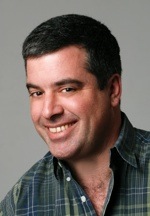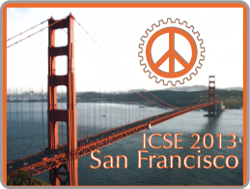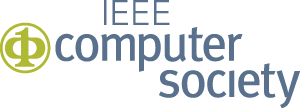 Armando Fox is Professor in Residence in UC
Berkeley's Computer Science Division as well as the Academic Director of
the Berkeley Resource Center for Online Education (BRCOE). He
co-designed and co-taught Berkeley's first Massive Open Online Course on
Engineering Software-as-a-Service, currently offered through EdX,
through which over 10,000 students worldwide have earned certificates of
mastery. He also serves on EdX's Technical Advisory Committee, helping
to set the technical direction of their open MOOC platform. His
computer science research in the Berkeley Parallel Computing Laboratory
focuses on highly productive parallel programming and, more recently,
online education. At Stanford he received teaching and mentoring awards
from the Associated Students of Stanford University, the Society of
Women Engineers, and Tau Beta Pi Engineering Honor Society. He has been
a "Scientific American 50" researcher, an NSF CAREER award recipient, a
Gilbreth Lecturer at the National Academy of Engineering, a keynote
speaker at the Richard Tapia Celebration of Diversity in Computing, and
an ACM Distinguished Scientist. In previous lives he helped design the
Intel Pentium Pro microprocessor and founded a successful startup to
commercialize his UC Berkeley Ph.D. research on mobile computing. He
received his other degrees in electrical engineering and computer
science from MIT and the University of Illinois. He is also a
classically-trained musician and performer, an avid musical theater fan
and freelance Music Director, and bilingual/bicultural (Cuban-American)
New Yorker living in San Francisco.
Armando Fox is Professor in Residence in UC
Berkeley's Computer Science Division as well as the Academic Director of
the Berkeley Resource Center for Online Education (BRCOE). He
co-designed and co-taught Berkeley's first Massive Open Online Course on
Engineering Software-as-a-Service, currently offered through EdX,
through which over 10,000 students worldwide have earned certificates of
mastery. He also serves on EdX's Technical Advisory Committee, helping
to set the technical direction of their open MOOC platform. His
computer science research in the Berkeley Parallel Computing Laboratory
focuses on highly productive parallel programming and, more recently,
online education. At Stanford he received teaching and mentoring awards
from the Associated Students of Stanford University, the Society of
Women Engineers, and Tau Beta Pi Engineering Honor Society. He has been
a "Scientific American 50" researcher, an NSF CAREER award recipient, a
Gilbreth Lecturer at the National Academy of Engineering, a keynote
speaker at the Richard Tapia Celebration of Diversity in Computing, and
an ACM Distinguished Scientist. In previous lives he helped design the
Intel Pentium Pro microprocessor and founded a successful startup to
commercialize his UC Berkeley Ph.D. research on mobile computing. He
received his other degrees in electrical engineering and computer
science from MIT and the University of Illinois. He is also a
classically-trained musician and performer, an avid musical theater fan
and freelance Music Director, and bilingual/bicultural (Cuban-American)
New Yorker living in San Francisco.
Title: Myths About MOOCs and Agile - Slides from the keynote
While the media's infatuation with MOOCs continues unabated, legislation
around MOOCs is racing ahead of pedagogical practice, and a recent
opinion piece expresses grave concerns about their role ("Will MOOCs
Destroy Academia?", Moshe Vardi, CACM 55(11), Nov. 2012). In the first
part of this talk, I will try to bust a few MOOC myths by presenting
provocative, if anecdotal, evidence that appropriate use of MOOC
technology can *improve* on-campus teaching, increase student throughput
while actually increasing course quality, and help instructors
reinvigorate their teaching.
The second part of the talk is a case study based on UC Berkeley's
Software Engineering course, in which students use Agile approaches and
leverage EdX MOOC technology (Berkeley's first and Coursera's
first) in an open-ended design project. We agree with many of our
colleagues that Agile is superior to disciplined or "Plan-and-Document"
methodologies for such projects. Yet the new 2013 ACM/IEEE curriculum
standard for software engineering, which places heavy emphasis on such
projects, is heavily focused on Plan-and-Document terminology. Hence
our question: If instructors follow the field's guidelines and use Agile
in a classroom project, can their course fulfill the requirements of the
new curriculum standard? Happily, the nonobvious answer is "yes"; I'll
explain why, and the role of MOOCs in improving our on-campus course
and enabling other instructors to replicate and build on our work.
 Dr. Thomas B. Hilburn is a Professor Emeritus of Software Engineering at Embry-Riddle Aeronautical University and was a Visiting Scientist at the Software Engineering Institute, Carnegie-Mellon from 1997 – 2009. He has worked on software engineering development, research, and education projects with the FAA, General Electric, Lockheed-Martin, the Harris Corp, the MITRE Corporation, DOD, FIPSE, the SEI, the NSF, the ACM and the IEEE Computer Society. He is an IEEE Certified Software Developer, an IEEE Software Engineering Certified Instructor, and has chaired committees on the Professional Activities Board and the Educational Activities Board of the IEEE Computer Society.
Dr. Thomas B. Hilburn is a Professor Emeritus of Software Engineering at Embry-Riddle Aeronautical University and was a Visiting Scientist at the Software Engineering Institute, Carnegie-Mellon from 1997 – 2009. He has worked on software engineering development, research, and education projects with the FAA, General Electric, Lockheed-Martin, the Harris Corp, the MITRE Corporation, DOD, FIPSE, the SEI, the NSF, the ACM and the IEEE Computer Society. He is an IEEE Certified Software Developer, an IEEE Software Engineering Certified Instructor, and has chaired committees on the Professional Activities Board and the Educational Activities Board of the IEEE Computer Society.
Preparing Students for Professional Practice - Slides
In 1992, Peter Denning wrote in a CACM column that “Employers and business executives complain that graduates lack practical competence”. He went on to catalogue the deficiencies of our computing programs in preparing their graduates for professional practice. This poses some questions for computing educators: Have we made progress on this issue in the last twenty years? If not, why not? If so, how much and how did we do it? What part has CSSE&T played in addressing the issue of preparing students for professional practice? How about ABET? What more can we do?
This presentation reviews our progress, or lack of progress, in addressing Denning’s concerns, and offers ideas for improving the way we prepare students for professional practice. Problems related to program objectives, curriculum, faculty, pedagogy and infrastructure are discussed and possible solutions are offered.
 Armando Fox is Professor in Residence in UC
Berkeley's Computer Science Division as well as the Academic Director of
the Berkeley Resource Center for Online Education (BRCOE). He
co-designed and co-taught Berkeley's first Massive Open Online Course on
Engineering Software-as-a-Service, currently offered through EdX,
through which over 10,000 students worldwide have earned certificates of
mastery. He also serves on EdX's Technical Advisory Committee, helping
to set the technical direction of their open MOOC platform. His
computer science research in the Berkeley Parallel Computing Laboratory
focuses on highly productive parallel programming and, more recently,
online education. At Stanford he received teaching and mentoring awards
from the Associated Students of Stanford University, the Society of
Women Engineers, and Tau Beta Pi Engineering Honor Society. He has been
a "Scientific American 50" researcher, an NSF CAREER award recipient, a
Gilbreth Lecturer at the National Academy of Engineering, a keynote
speaker at the Richard Tapia Celebration of Diversity in Computing, and
an ACM Distinguished Scientist. In previous lives he helped design the
Intel Pentium Pro microprocessor and founded a successful startup to
commercialize his UC Berkeley Ph.D. research on mobile computing. He
received his other degrees in electrical engineering and computer
science from MIT and the University of Illinois. He is also a
classically-trained musician and performer, an avid musical theater fan
and freelance Music Director, and bilingual/bicultural (Cuban-American)
New Yorker living in San Francisco.
Armando Fox is Professor in Residence in UC
Berkeley's Computer Science Division as well as the Academic Director of
the Berkeley Resource Center for Online Education (BRCOE). He
co-designed and co-taught Berkeley's first Massive Open Online Course on
Engineering Software-as-a-Service, currently offered through EdX,
through which over 10,000 students worldwide have earned certificates of
mastery. He also serves on EdX's Technical Advisory Committee, helping
to set the technical direction of their open MOOC platform. His
computer science research in the Berkeley Parallel Computing Laboratory
focuses on highly productive parallel programming and, more recently,
online education. At Stanford he received teaching and mentoring awards
from the Associated Students of Stanford University, the Society of
Women Engineers, and Tau Beta Pi Engineering Honor Society. He has been
a "Scientific American 50" researcher, an NSF CAREER award recipient, a
Gilbreth Lecturer at the National Academy of Engineering, a keynote
speaker at the Richard Tapia Celebration of Diversity in Computing, and
an ACM Distinguished Scientist. In previous lives he helped design the
Intel Pentium Pro microprocessor and founded a successful startup to
commercialize his UC Berkeley Ph.D. research on mobile computing. He
received his other degrees in electrical engineering and computer
science from MIT and the University of Illinois. He is also a
classically-trained musician and performer, an avid musical theater fan
and freelance Music Director, and bilingual/bicultural (Cuban-American)
New Yorker living in San Francisco.
 Dr. Thomas B. Hilburn is a Professor Emeritus of Software Engineering at Embry-Riddle Aeronautical University and was a Visiting Scientist at the Software Engineering Institute, Carnegie-Mellon from 1997 – 2009. He has worked on software engineering development, research, and education projects with the FAA, General Electric, Lockheed-Martin, the Harris Corp, the MITRE Corporation, DOD, FIPSE, the SEI, the NSF, the ACM and the IEEE Computer Society. He is an IEEE Certified Software Developer, an IEEE Software Engineering Certified Instructor, and has chaired committees on the Professional Activities Board and the Educational Activities Board of the IEEE Computer Society.
Dr. Thomas B. Hilburn is a Professor Emeritus of Software Engineering at Embry-Riddle Aeronautical University and was a Visiting Scientist at the Software Engineering Institute, Carnegie-Mellon from 1997 – 2009. He has worked on software engineering development, research, and education projects with the FAA, General Electric, Lockheed-Martin, the Harris Corp, the MITRE Corporation, DOD, FIPSE, the SEI, the NSF, the ACM and the IEEE Computer Society. He is an IEEE Certified Software Developer, an IEEE Software Engineering Certified Instructor, and has chaired committees on the Professional Activities Board and the Educational Activities Board of the IEEE Computer Society.


